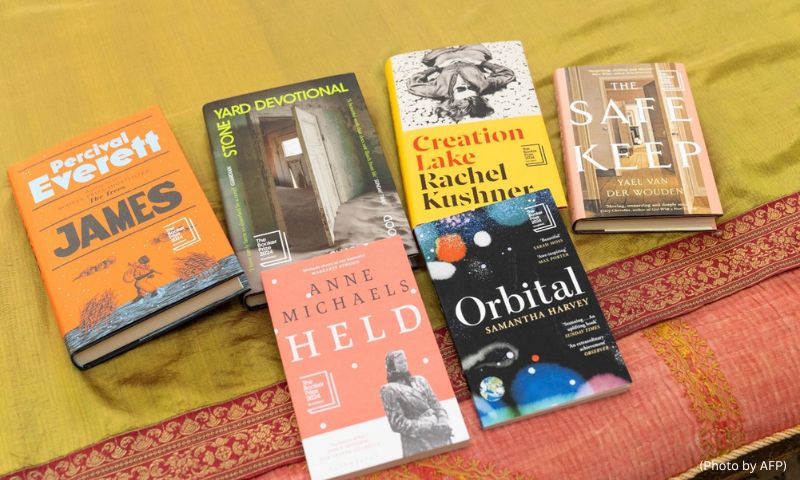LONDON: British writer Samantha Harvey won the 2024 Booker Prize, a prestigious English-language literary award, for her novel tracking six astronauts in space for 24 hours.
Spanning the course of a single day, Harvey’s “Orbital” tracks astronauts from Japan, Russia, the United States, Britain and Italy as they observe and reflect on their home planet, touching on themes of mourning, desire and the climate crisis.
The Booker, which comes with a 50,000 pound ($64,000) cash prize, has launched careers and courted controversy since its creation in 1969. Past laureates include Margaret Atwood, Ian McEwan, Julian Barnes and Kazuo Ishiguro.
“I was not expecting that,” Harvey said upon learning of her win, the first by a woman since Atwood was recognised in 2019 for “The Testaments” alongside Bernardine Evaristo for “Girl, Woman, Other”.
In her acceptance speech, Harvey dedicated the prize to “everybody who does speak for and not against the Earth; for and not against the dignity of other humans, other life; and all the humans who speak for and call for and work for peace”.
– ‘Everyone and no one’ –
Just 136 pages long, “Orbital” is the second-shortest novel to win the award and the first to be set in space, according to the Booker Prize Foundation. It is the 49-year-old Harvey’s fifth novel, winning 15 years after her debut book “The Wilderness” was longlisted for the prize.
READ ALSO: Indian Police Arrest Man for Making Threatening Call to Shah Rukh Khan
Edmund de Waal, chair of the judges, described “Orbital” as “a book about a wounded world” with “everyone and no one” as the subject. “With her language of lyricism and acuity Harvey makes our world strange and new for us,” he added.
Harvey described her work as a “space pastoral” in an interview with prize organisers after she was named to the Booker longlist. “I wanted to write about our human occupation of low earth orbit for the last quarter of a century — not as sci-fi but as realism,” she said.
“Could I evoke the beauty of that vantage point with the care of a nature writer? Could I write about amazement? Could I pull off a sort of space pastoral? These were the challenges I set myself.”
The prize is seen as a talent spotter of names not necessarily widely known to the general public. —AFP

























